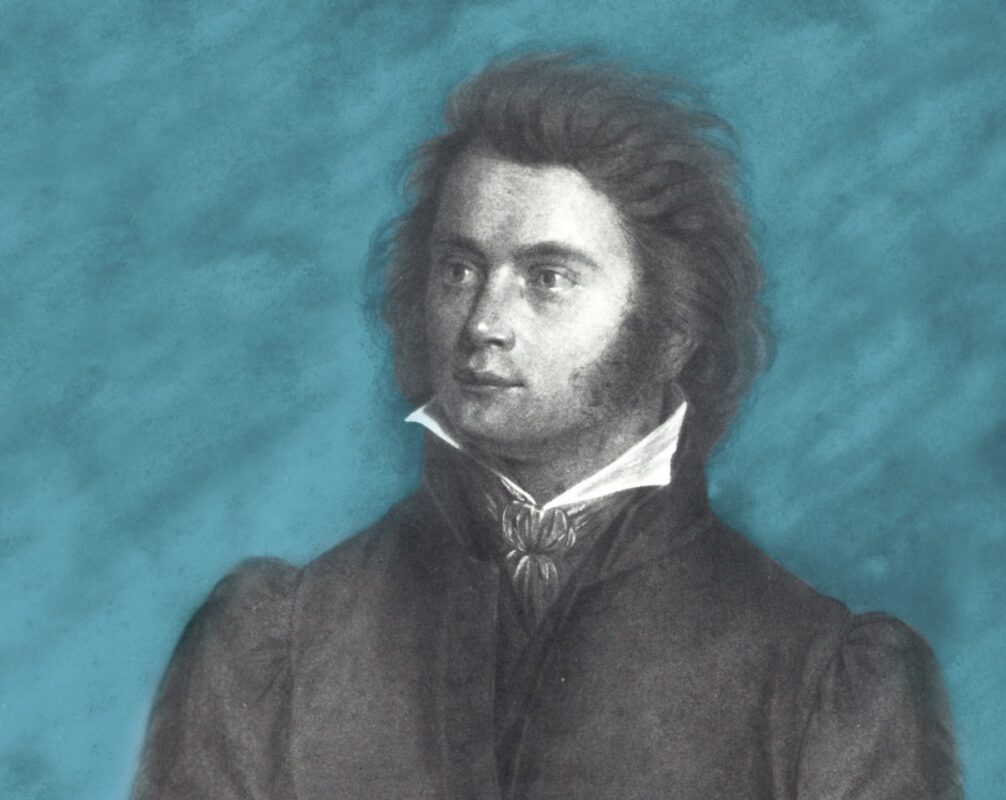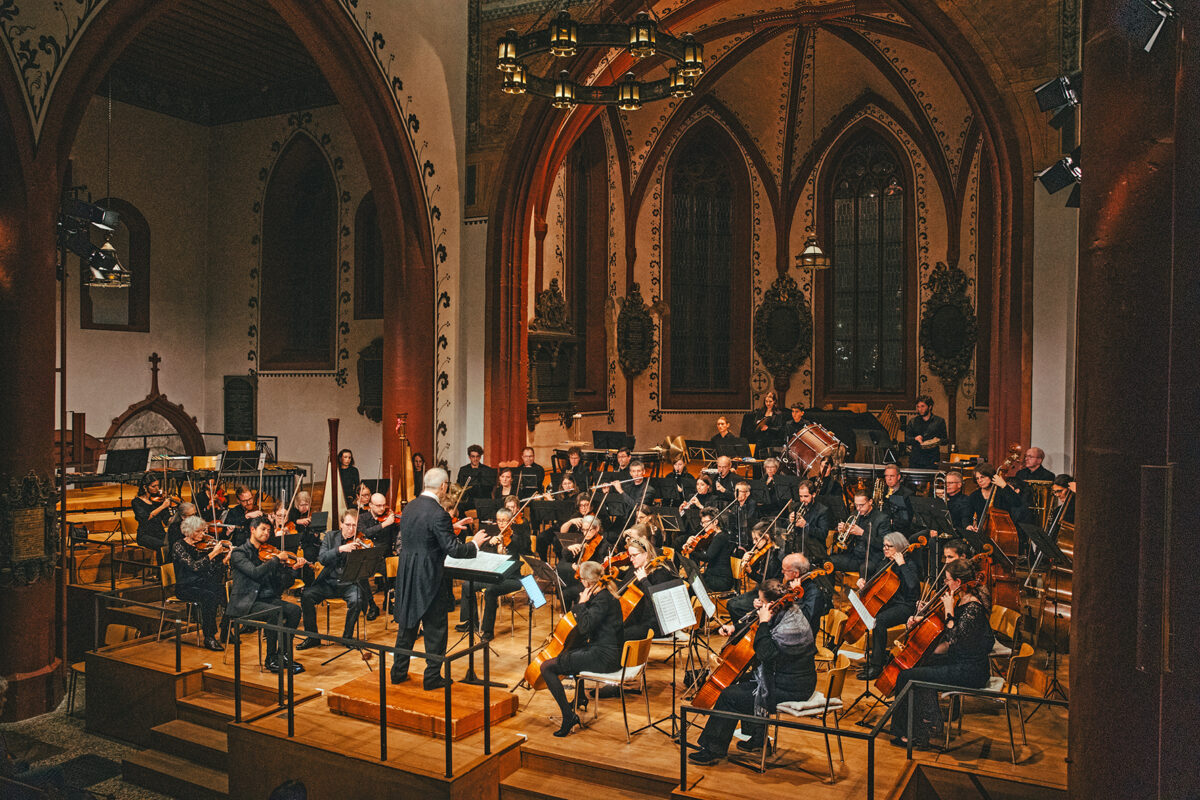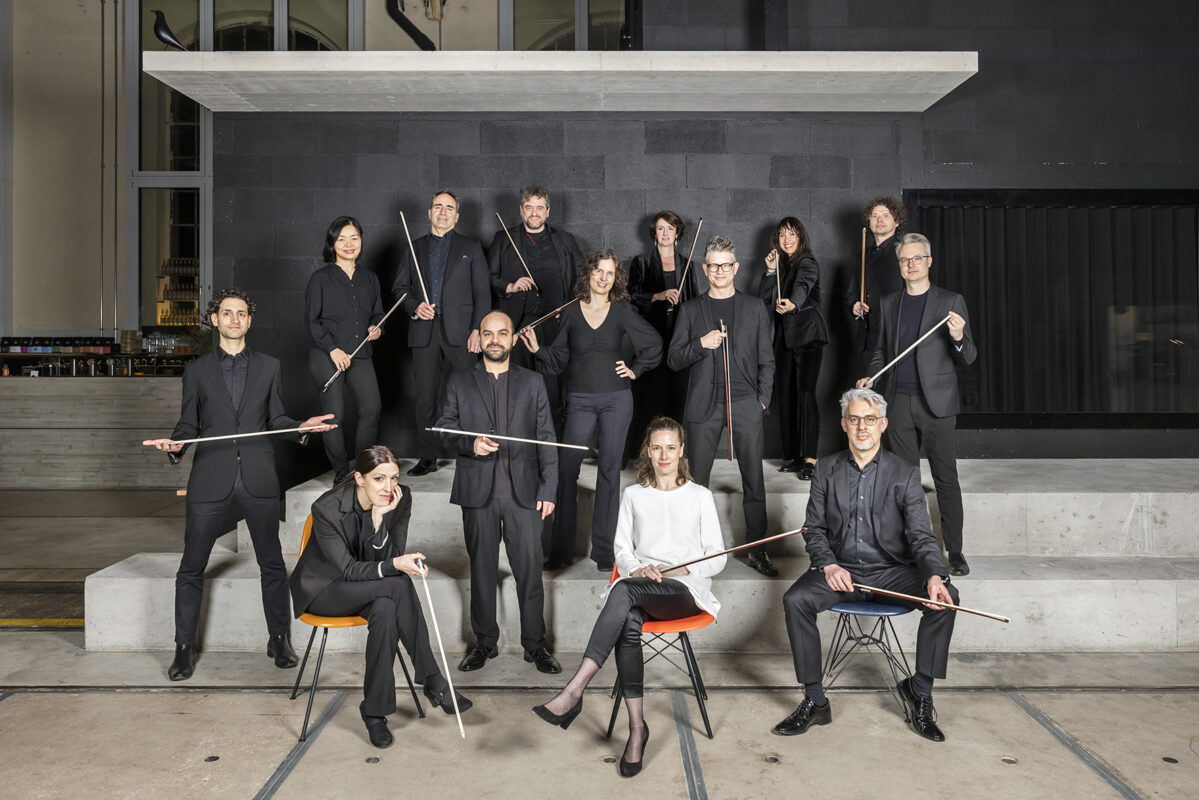Helvetic fire in Meiningen
The Swiss Philippe Bach has been General Music Director of the historic Hofkapelle since 2010. In his programs, he builds bridges from one country to another with many Swiss performers and works.
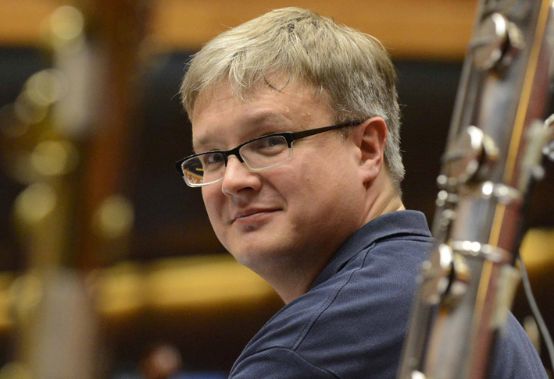
From Bach to Bach. This is a brief description of the history of the 325-year-old Meiningen court orchestra. It was Johann Ludwig Bach, a distant relative of the great J. S., who, followed by other members of the widely ramified family, transformed the royal seat of Saxony-Meiningen into an important musical center with the court orchestra in the first third of the 18th century. For six years now, a completely different Bach, namely a Swiss Bach, has been at the helm of Meiningen's musical culture as General Music Director: Philippe Bach, who studied horn and conducting in Bern, Geneva, Zurich and Manchester, took over one of the most historic German orchestras in 2010.
Proud history
Meiningen is a quiet and pretty small town in southern Thuringia between the Rhön and the Thuringian Forest, which has been spared to some extent from the hardships of recent German history. However, Meiningen is also a unique cultural center. First of all, there is the court orchestra, a symphony orchestra with a good sixty members, whose meteoric rise before and around 1900 is associated with names such as Franz Liszt, Johannes Brahms, Hans von Bülow, Richard Strauss and Max Reger or that of the violinist Alexander Ritter and the clarinettist Richard Mühlfeld. It was the Meiningen court orchestra that shaped the Bayreuth Festival Orchestra for years, not only because of its proximity but also because of its outstanding qualities.
There is the Meininger Theater, where - also at the end of the 19th century and probably for the first time in history - an early form of director's theater and a consistently naturalistic directorial and visual concept was developed, which made history under the heading "Meininger Principles". For years, the Meininger Theater toured Europe on the newly built railroad lines, always carrying the detailed and voluminous stage sets of the Coburg theater painter Max Brückner in up to 20 railroad carriages. No wonder the people of Meiningen still revere Duke Georg II like a city father. From 1866, the so-called "Theatre Duke" had not only supported the orchestra and theater for over half a century, he had also directed and sketched stage props, and last but not least, as a socially liberal-minded politician, he stood up to the Wilhelmine Empire.
Today, there are also the Kammerspiele, which focuses on experimental plays, the puppet theater or the cabaret and dance houses ... Meiningen is an extraordinary city of art and, with its 20,000 inhabitants, only half the size of Thun or Aarau.
Courageous presence
If you click on Meiningen's official website, the first thing you see is the golden vault of the theater, an empire-style building. Philippe Bach comes and goes here, conducting concerts and operas, such as Straussʼ Capriccio or Adèsʼ Powder Her Face. Unless the General Music Director (GMD) is on the road with his court orchestra, for example in the steam locomotive works in the north of the city or again and again in the great hall at Wartburg Castle near Eisenach, where Wagner's Tannhäuser is played at the "original location", so to speak - a special kind of tourist event.
2015/16 was an anniversary year for the Meininger Hofkapelle, which also performs the orchestral concerts in the theater. The orchestra, which has borne its old name again since 2006, celebrated its 325th anniversary. However, to paraphrase Mahler's oft-quoted words, Philippe Bach is far from worshipping the ashes of past weddings, but has lit several fires since taking office, Helvetic ones nota bene. Of course, Brahms, Strauss and Reger may enjoy a certain privileged position, but an interpreter who has honed his craft with personalities such as Peter Eötvös knows the present and looks to the future. The fact that a kind of Swiss constant enriches his programs is gratifying and, above all, not to be taken for granted.
Fruitful exchange
From the very beginning, Philippe Bach regularly invited Swiss performers such as the pianist Adrian Oetiker, the horn player Olivier Darbellay and the conductor Kaspar Zehnder to Meiningen. Compositions by Honegger, Martin or Rudolf Moser have probably been internalized by the Meiningen audience in a way that one can only dream of here in Switzerland. So it is hardly surprising that Bach did not hold back from inviting two Swiss performers, Heinz Holliger and Mario Venzago, for the anniversary season. Framed by early works by Richard Strauss, Holliger presented five of his solo and duo compositions with the klangart ensemble to the enthusiastic Thuringian audience. This resulted in a multi-perspective Meiningen-Swiss program.
Concert programs speak a special language when the pieces look at each other, complement each other and point beyond themselves in their constellation. Mario Venzago dared to combine Arthur Honegger's Fifth (di tre re) and Paul Juon's A major Symphony was even a purely Swiss program. Juon's symphony, which earned the composer the honorific title of a "Russian Brahms" during his lifetime, was premiered by the Meiningen court orchestra in 1903. In the coming season, Philippe Bach will once again present an astonishing Swiss guest package in Meiningen with bassoonist Andrea Cellacchi, pianists Adrian Oetiker and Teo Gheorgiu and flautist Matthias Ziegler. In return, Philippe Bach will conduct Max Reger's Variations and Fugue on a Theme by Mozart, a work that the composer wrote in Meiningen in 1914, at the Bern Symphony Orchestra concert in November.
A very special musical axis has emerged between republican-helvetic restraint and courtly Thuringian historicity.
-
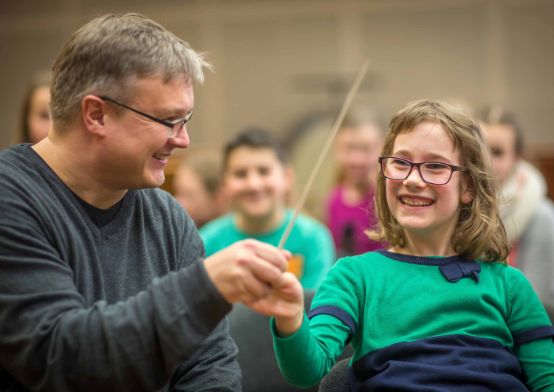
Children's concert with Philippe Bach in Meiningen. Photo: Michael Reichel






